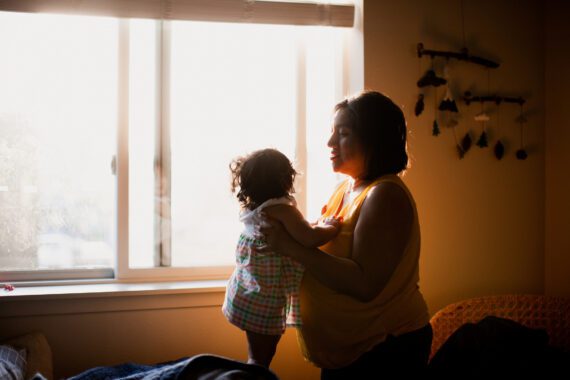The civil war between the Republic of Biafra and Nigeria in 1967 and its impact on food security is a hunger hotspot Bread for the World would have been sounding the alarm on the importance of humanitarian access, given Bread’s 50-year history of working to end hunger and human suffering across the globe.
Similar to today’s hunger hotspots involving Sudan, Haiti and Gaza, people protested against barriers to humanitarian access to food.
“Barriers to humanitarian access” is a phrase we are becoming increasingly familiar with. Globally in the late 1960s, during the Nigerian civil war, people protested the policies and actions that prevented humanitarian access. Today’s hunger hotspots—Sudan, Haiti, Gaza, and others—commonly include dangerous “barriers” as well.
The outcome of the war between the Republic of Biafra and Nigeria was that 2 million lives were lost due to the weaponization of food – blockades which prevented humanitarian assistance from reaching people in time. During this manmade famine, people also died from disease, worsened by malnutrition, lack of basic health care, and most likely loss and grief as well.
According to a U.S. government official who was working to coordinate humanitarian access to Biafra during the war, “It was clear to me that the volume of food alone that was required was far beyond any logistical arrangement that would be feasible without a cease-fire and direct access to the Biafran area….” In the archives of the U.S. Agency for International Development (USAID), a staff member was quoted as saying, “Only a cease-fire will halt the starvation of an estimated 5 to 6 million in Biafra.”
The Nigerian civil war’s tragic outcomes are warning signs for many of the conflicts we grapple with today, when the number of lives lost due to lack of access to food remains on the increase. In the world’s reaction to this dire humanitarian crisis, we recognize the common stages of human reaction to tragedy, ranging from numbed inaction to proactive efforts to do better.
Through Bread for the World’s Hunger Hotspot Briefing series, we have been taking proactive action, bearing witness, and advocating for humanitarian policy measures that can save lives and avert human suffering in today’s hunger hotspots. We convene frontline humanitarian workers, who put their lives at risk to prevent the loss of others’ lives. They highlight, in their own words, the challenges and the solutions that are urgently needed. It is a legal and moral humanitarian imperative to provide expedited assistance to communities and countries facing hunger. We provide a platform for humanitarian organizations to discuss their work in context and the implications of positive policies, harmful actions, and inaction.
For the period ending April 30, 2024, the Hunger Hotspots report published by the World Food Programme and the Food and Agricultural Organization identified 18 hunger “hotspots” in a total of 22 countries. The countries on the list were all expected to face significant deteriorations in food security. The report delineates how intersecting causes such as conflict, climate impacts, and economic inequality put the livelihoods and well-being of communities in peril. These factors continue to drive the existing high levels of acute food insecurity even higher.
The most recent report also paints a fuller picture of what we already see on the news. The countries at the highest level of concern are Sudan, Haiti, Burkina Faso, Mali, South Sudan, and Palestine. Without full humanitarian access, experts say millions of people in all the “highest level of concern” countries will face famine-like conditions.
History, particularly the history of the Nigerian civil war, tells us that the only viable option that will save lives is a durable ceasefire that allows people to return to dignified lives that include access to sufficient nutritious food.
Humanitarian access is an important concept under international humanitarian law. Access to allow aid workers to bring in essential humanitarian supplies is formally negotiated. Pursuant to U.N. General Assembly resolutions, the U.N. Emergency Relief Coordinator arranges for organizations to access people in crisis-affected areas, providing emergency assistance such as food, water, health care, and shelter.
Humanitarian assistance must be provided in accordance with the legal principles of humanity, neutrality, impartiality, and independence. Compliance with these principles helps humanitarians gain trust and acceptance, which, in turn, helps them negotiate with state and non-state entities to reach people in need. This basic principle of humanitarian access was not faithfully implemented during the 1967 civil war between Nigeria and the Republic of Biafra.
The questions remain: Who should have been a more prominent voice in the public discourse on the importance of humanitarian access to Biafra? Were these voices loud enough and courageous enough to save lives? What voices are needed to help prevent tragedy on such a scale from being repeated in hunger hotspots around the world?
Abiola Afolayan is co-director, Policy and Research Institute, with Bread for the World.



